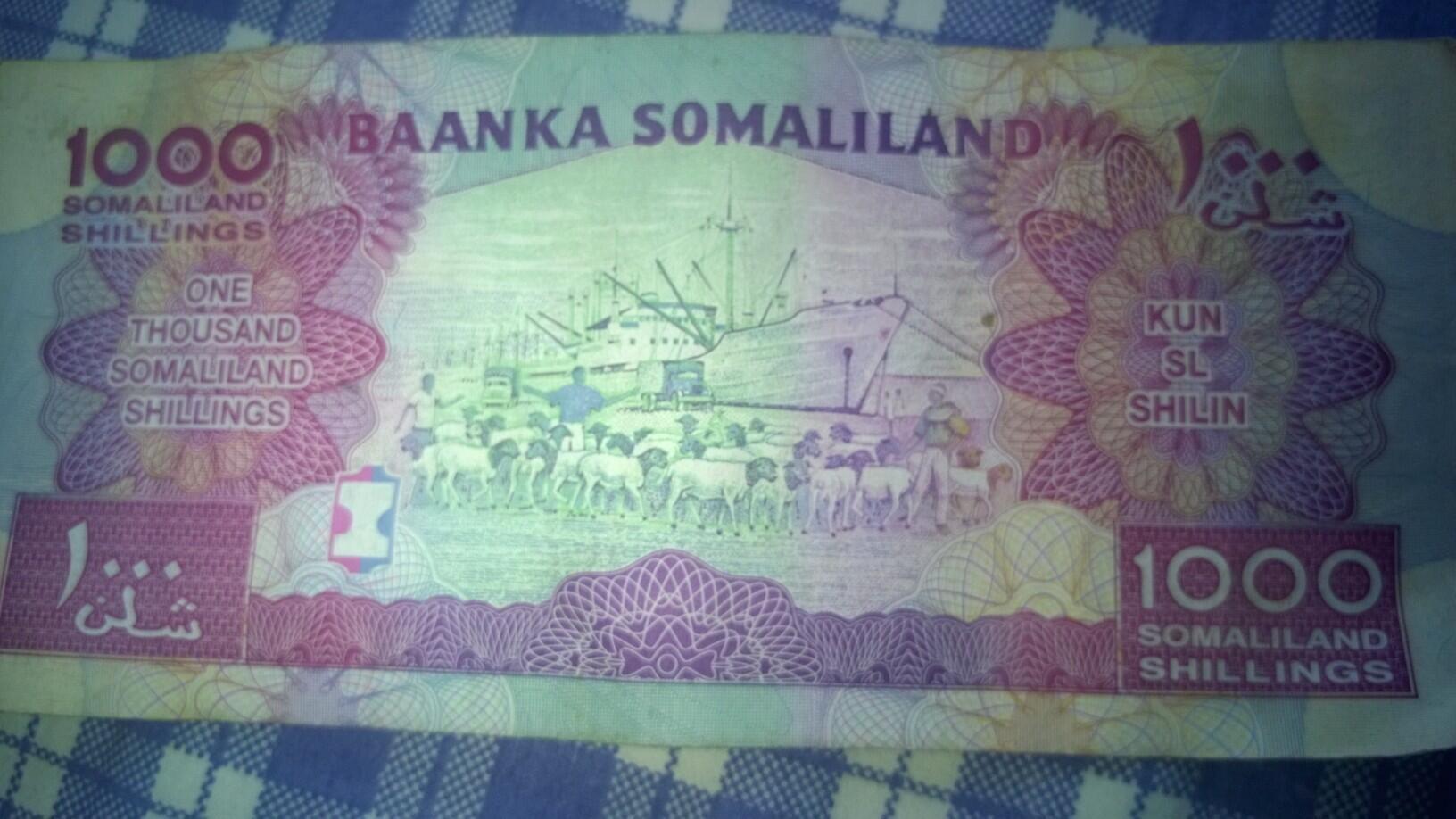Somaliland’s livestock trade revives after year of drought
Livestock is the lifeblood of Somaliland animal export is depicted on the 1,000 shilling note. The autonomous region in the Horn of Africa, which is not recognised by the UN, domestic product (GDP), so the year-long drought that has just ended was a body blow to the economy.
Issued on: Modified:

In Borama, a town some 120 kilometres of road northwest of Hargeisa, the capital, the livestock market is in full swing, as animal brokers, pastoralists, buyers and exporters are making the rounds. Buyers are here to see goats, a Somaliland staple, and other beasts

for sale.
A year-long drought ended one month ago, and Muhumed Mohamed Elmi, an animal exporter a smart white scarf and a blue jalabiya - a traditional outfit worn by men in the Arabic-speaking world - came to see if there had been any improvement in the livestock, who suffered during the drought.
“As you can see today,” he told RFI, “there are not enough animals.
"Normally this would have been very crowded with many businessmen like me and full of livestock, from wall to wall. Very busy. But you can see: There’s nothing. And the few animals are still weak."
Elmi normally buys male goats, camels and cattle to export to Saudi Arabia, Yemen, the United Arab Emirates and Oman in large quantities: 10,000 goats, 2,000 cows or camels. By law he is only allowed to send male animals, to ensure that the trade is protected and the buyers will not be able to make their own herds. He says the livestock at this market will not survive the three-night boat ride to Saudi.
“There have been several droughts in the country and after that it rained a lot. The animals became too weak during the drought,” he said. “The remaining are too weak to trade.”

Broker Ibrahim Abdi Omar works with 10 restaurants in Somaliland and neighbouring Ethiopia, buying animals, goats in particular, to be served to hungry customers. Goat is king in Somaliland - goat-and-potato stew for breakfast, goat spaghetti for dinner. Business is suffering, however.
“Normally I’d make a profit of around 10 dollars a day, depending on what I get, but that has now decreased to four dollars because there are not enough goats. Our life depends on this - on what we can buy and sell at the animal market,” said Omar. “The prices went up. We’re not making the profit."
Women are pinching the backs of goats, determining whether they are strong enough to survive after the crippling drought that changed the lives of some Somaliland pastoralists forever. One woman in a green polka-dotted long dress and bright yellow embroidered hijab (headscarf) stands near a few goats but they are not hers.
“I was a pastoralist but I’ve lost all my livestock. I went to another village where they still have some animals for sale and brought them all the way to the market,” said Sofia Abdi, a widow with nine children.

The smallest five children are waiting for her in the village, while the older ones have been sent to live with relatives. It takes her two days' walking to reach the market. With not a lot of options, she says she struggles to keep food on the table, but sometimes she is caught between brokers and sellers who force her to trade with them on credit.

“When I bring them here, sometimes the people borrow the animals and pay me for them later,” she said. Brokers, especially those trying to fill boats for the Arabian Gulf countries, keep animals until they have enough for a shipment.
“They take it by credit. So I have to wait for what I get. Sometimes I have to wait two months for 10 dollars,” she added, admitting that some days she has nothing to cook.
Omar, the broker, remains positive about the rest of the year despite the hardship inflicted by the drought. “At least we have something here now because it rained,” he commented. “They are recovering but it is still a long way to go. We have hope that things will change for the better.”
Buyers and sellers mingle at the livestock market in Borama, Somaliland, after the drought
Daily newsletterReceive essential international news every morning
Subscribe